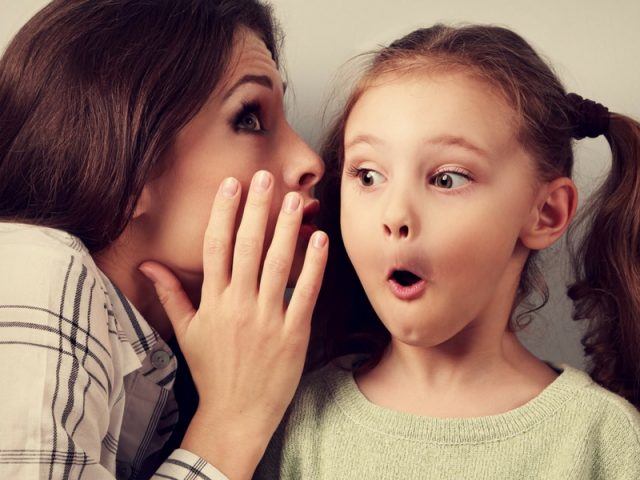Start off young? Wait till they “reach a certain age”? What is the right time and age for parents to talk to kids about sex and have the discussion about the birds and the bees?
Simple answer: Take the former option and don’t hesitate to teach them when they’re young at a time when you can count their age on one hand.
Let’s look at the how, what and when with a simple analysis:
When you as parents talk to kids about sex, make sure the right amount of information is disseminated to them at the right age.
This doesn’t mean that you’ll be lying to them or withholding valuable insight from them, it simply means you’ll educate them step by step for their young minds to comprehend.
Start With The Basics:
Young kids have a barrage of questions about themselves and how they exist, about their genitals, about attraction towards the opposite sex (or the same sex, or their sexuality in general which BY THE WAY can be of 11 different types but that’s a whole other story), sexual arousal, etc.
Your job as a parent is TO CLEAR ALL THEIR DOUBTS with facts and logic rather than being ignorant, as talking to them when they’re old will only lead to confusion.

Educate them step by step about their genitalia and for the sake of all that is good in the world, don’t come up with weird baby names for it like Ned Flanders from the Simpsons.
Tell them that it’s never appropriate for elders to touch their privates, it’s not okay for the kids to force other kids to touch them and most importantly, talk to them about how sexual intercourse takes place as a means of reproduction when they’re slightly over 5-6 years old, making them aware about the science of it (the whole sperm fuses with the egg thing).
Kids need to learn as early as possible about sexual hygiene and the science behind sex. In an interesting article at The Washington Post which discusses Deborah Roffman’s book “Talk to Me First: Everything You Need to Know to Become Your Kids’ ‘Go-To’ Person About Sex,” the author of the book says:
If we’re not deliberately reaching out to kids by third grade, almost everything they learn after that is going to be remedial, she says. Sexual intercourse in the service of reproduction is thoroughly age-appropriate for 6-year-olds.
During Teenage Years:
As hard as it may sound, you’ll need to talk to them about masturbation during puberty.
Explain how it’s okay to touch and explore your body but at the same time, talk to them about how sexual arousal doesn’t need to result in sexual intercourse unless they turn into adults.
In a country which hyper-sexualizes condom advertisements to an extent that they feel like softcore porn, I understand it can be tough to talk to kids about sex and other concerned topics when the kids are going through puberty and start experiencing arousal.
An inherent lack of sexual education in academic institutions can be dangerous for kids as they might succumb to peer pressure in a quest to find out “Who Gets Laid Fist”.
Your job as a parent: Make sure that doesn’t happen
Talk to kids about sex and tell them about safe sex practices when they’re mature. Explain that pregnancy can happen if proper methods of contraception aren’t used and it can even result in STDs.
Some kids might find it “gross” and as tough as it sounds, never shy away from talking to them about oral sex.
This discussion might gross them out at a certain age but no knowledge gets wasted and when they turn to adults, they’ll know what to do. Be open to their questions and inquisitive minds and never shun or ignore them.
The key to dialogue is acceptance and in a country as backward as ours in terms of imparting sex education among kids in schools, it’s the parents who need to do the trick and not only educate, but make the kids aware about appropriate and inappropriate sexual behavior.
Pornography should be an active part of your teachings too when your kids are old enough to engage in sexual intercourse, as they need to be made aware about the realistic aesthetic of sex as compared to a theatrically visualized and exaggerated one.
Think of it as consuming green vegetables. They don’t taste good but they’re beneficial for the body and here, by making your child more aware, you’re benefiting them in countless ways.
So, don’t shy away from answering your child’s “How was I born?” question.
It may just be a difference in providing your child a safe future.
Image Credits: Google Images
You’d Also Like To Read:
http://edtimes.in/sexed-indian-men-bad-flirting-picking-women/

































